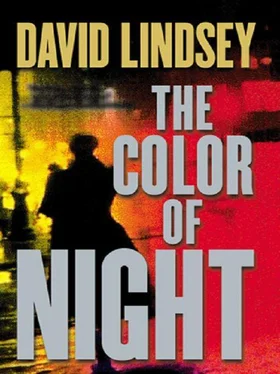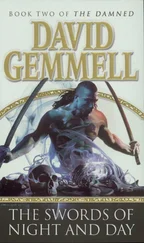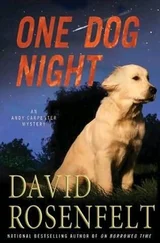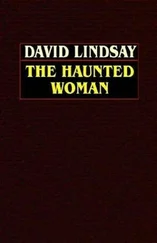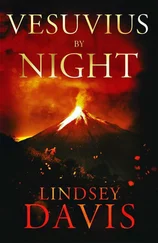David Lindsey - The Color of Night
Здесь есть возможность читать онлайн «David Lindsey - The Color of Night» весь текст электронной книги совершенно бесплатно (целиком полную версию без сокращений). В некоторых случаях можно слушать аудио, скачать через торрент в формате fb2 и присутствует краткое содержание. Жанр: Полицейский детектив, на английском языке. Описание произведения, (предисловие) а так же отзывы посетителей доступны на портале библиотеки ЛибКат.
- Название:The Color of Night
- Автор:
- Жанр:
- Год:неизвестен
- ISBN:нет данных
- Рейтинг книги:4 / 5. Голосов: 1
-
Избранное:Добавить в избранное
- Отзывы:
-
Ваша оценка:
- 80
- 1
- 2
- 3
- 4
- 5
The Color of Night: краткое содержание, описание и аннотация
Предлагаем к чтению аннотацию, описание, краткое содержание или предисловие (зависит от того, что написал сам автор книги «The Color of Night»). Если вы не нашли необходимую информацию о книге — напишите в комментариях, мы постараемся отыскать её.
The Color of Night — читать онлайн бесплатно полную книгу (весь текст) целиком
Ниже представлен текст книги, разбитый по страницам. Система сохранения места последней прочитанной страницы, позволяет с удобством читать онлайн бесплатно книгу «The Color of Night», без необходимости каждый раз заново искать на чём Вы остановились. Поставьте закладку, и сможете в любой момент перейти на страницу, на которой закончили чтение.
Интервал:
Закладка:
“I just got a call from an old friend,” Mara said, approaching the door to the room where Strand had been spending the afternoon poring over half a dozen art books he had bought that afternoon in the Largo Chigi. “A woman I’ve known for years. We’re going to have drinks at a little cafe near the bottom of Veneto. Want to go along?”
Strand looked at his watch and then outside to the courtyard, where the light was already softening in the late afternoon.
“You still want to have dinner at Toula’s at nine?” he asked.
“Sure.”
“Then I think I’ll pass.”
“She’s going to be disappointed.”
Strand shrugged. “I’ll open a bottle of something here and think about you at dusk.”
She came across the room to the sofa, where he sat among books and papers scattered about him, and leaned over the back of the sofa, put her arms around his neck, and kissed him.
“She’s pretty,” she whispered. “You’ll be missing something.”
“Well, that’s enticing”-Strand scratched his temple with his pencil-“but I really don’t want to stop in the middle of this. Tell her… it pained me to forgo the pleasure of her company.”
“Yeah,” Mara said, straightening up, “she’ll swoon.” She turned and headed for the door, grabbing her shoulder bag from a chair on the way out. “See you later.”
Strand worked for nearly an hour more before he stopped, laid aside a folio volume of early Renaissance architectural drawings, and rubbed his eyes. He hadn’t even gotten up from the sofa since Mara left, and he needed to stretch his legs and go to the bathroom. First he turned on a few lamps, giving the room a soft amber glow.
This generous room had become Strand’s favorite place in the house because of its antique furniture and broad doorways opening to the loggia and courtyard. Pictures hung everywhere here, covering the high walls, hanging over the fireplace and over the doors. There were tall narrow paintings and horizontal drawings, some with elaborate frames, some with simple ones, square pictures, small oval ones; oils, pastels, pencil, charcoal, and metal point. One of Mara’s rare large nudes hung on the north wall, a dominant piece that Strand liked very much. In one corner of the room was an easel and a small table cluttered with pencil and charcoal boxes with colorful French and Italian labels.
He went down the corridor to the bathroom, and when he returned he opened the French doors to the evening air, standing and looking out with his hands in his pockets. Somewhere in another concealed garden a peacock cried. The city was all around him, yet the only evidence of it was a faraway and almost imperceptible hum of traffic.
Leaving the French doors open, he stepped outside and stood for a moment in the loggia. The east wall in the courtyard was rosy and deepening quickly as the sun fell behind the Janiculum across the Tiber. He stepped out onto the cinder path that followed the wall and began walking, his shoes making a crunching sound on the cinder. At the far end of the garden he stopped and listened to the peacock again and took a deep breath of the air. The air of Rome changed at dusk and acquired a special quality in the same way that the city’s famous light took on a unique character of its own at certain times of the year. At night the air was nearer to antiquity than in the day, and one could imagine with greater clarity the men and women of former ages.
He moved on, rounding the garden on his way back to the loggia. When he was nearly there he looked toward the French doors, anticipating that the amber glow from the few lamps in the room would be even richer in color now with the greater darkness. Instead he saw a jarring, pale light, flickering against the panes of the French doors.
He stopped. The television? Was Mara home? She hadn’t touched the television since they had arrived.
His heart began to lope, and all of his old reflexes roused themselves as he studied the pale light from the darkness where he stood. Then he walked on. He stepped up on the loggia and entered the villa through the French doors.
No one was there. He called out. Nothing. The house, his sixth sense told him, was empty.
Between the fireplace and the French doors was a small black statue, an admirable study of a Maillol nude. It sat on what must have been a narrow pedestal covered with a faded scarlet Renaissance damask with fleur-de-lis pattern in gold thread and a gold cord trim.
Next to it was a dark, heavy antique table upon which sat a black television and a VCR. On a shelf below were half a dozen cassettes, all of them labeled with Mara’s handwriting: “Master drawings, the Uffizi”; “Drawing collection, Villa Borghese”; “Modern drawing exhibit, American Academy”; “Balthus exhibit, Academia Valentino.” Strand had looked at the labels before, but he had never watched the tapes.
The VCR was on, static dancing on the fluorescing screen. A cassette was half out of the slot.
Strand walked over to it and took it out. No label, no identification. He put it back into the slot and pushed it in. The slot door closed. The gears whirred. He stood, watching, as it began to play. The Balthus exhibit. Mara’s voice narrating. The images were sharp and in color, and Mara was doing a good job, taking the exhibit slowly, coming in close on the paintings and drawings, narrating, reading the attributions on the labels below or to the side of each piece.
After fifteen or twenty seconds, Mara’s narration was abruptly interrupted and a grainy black-and-white tape began to play. A timing counter showed up in the lower left corner of the screen. A gummy, hot feeling washed over him as he immediately recognized the characteristics of a surveillance tape. He stood, riveted, in front of the screen. There was no audio track, and the only sound in the room was the slight hiss of the tape whirring slowly on the spinner heads inside the player.
The camera seemed to be mounted on the dashboard of a car. It was night, and the headlights of the car picked up traffic traveling in the same direction on what appeared to be an expressway. Headlights from approaching traffic across a median flared in bright streams as they approached and disappeared. The car moved in and out of the general stream of traffic with no discernible purpose. After a few moments it became clear that only one car had been in front of them consistently through all the lane switching and the passing and being passed.
Strand tried in vain to identify the locale: highway markers and exit signs had been manipulated and deliberately blurred. The cars were American; that was all he could tell. The camera car stayed so far back behind its target that Strand couldn’t tell anything about the driver or even how many people were in the car, and when the driver braked or switched lanes the tail and signal lights caused a halo effect that obscured its identifying marks even more.
What the hell was this?
The traffic grew thinner, then sparse. The car being taped took an exit onto an access road, then turned onto what appeared to be a country road. The nighttime conditions and the relatively narrow field of vision afforded by the headlights did not allow Strand to gain any significant information from the terrain. Once or twice he thought he saw sand dunes.
The two cars then turned off onto a smaller road, which, though it was still paved, was most likely on private land. Suddenly the speed of the cars accelerated dramatically. The camera car quickly closed on the car in front of it, and in a sickening instant Strand recognized his old Land Rover. Before he had time to make his mind work around that realization, a spotlight came on in the camera car, lighting the back of the driver’s head in the lead car just as she looked around.
Читать дальшеИнтервал:
Закладка:
Похожие книги на «The Color of Night»
Представляем Вашему вниманию похожие книги на «The Color of Night» списком для выбора. Мы отобрали схожую по названию и смыслу литературу в надежде предоставить читателям больше вариантов отыскать новые, интересные, ещё непрочитанные произведения.
Обсуждение, отзывы о книге «The Color of Night» и просто собственные мнения читателей. Оставьте ваши комментарии, напишите, что Вы думаете о произведении, его смысле или главных героях. Укажите что конкретно понравилось, а что нет, и почему Вы так считаете.
